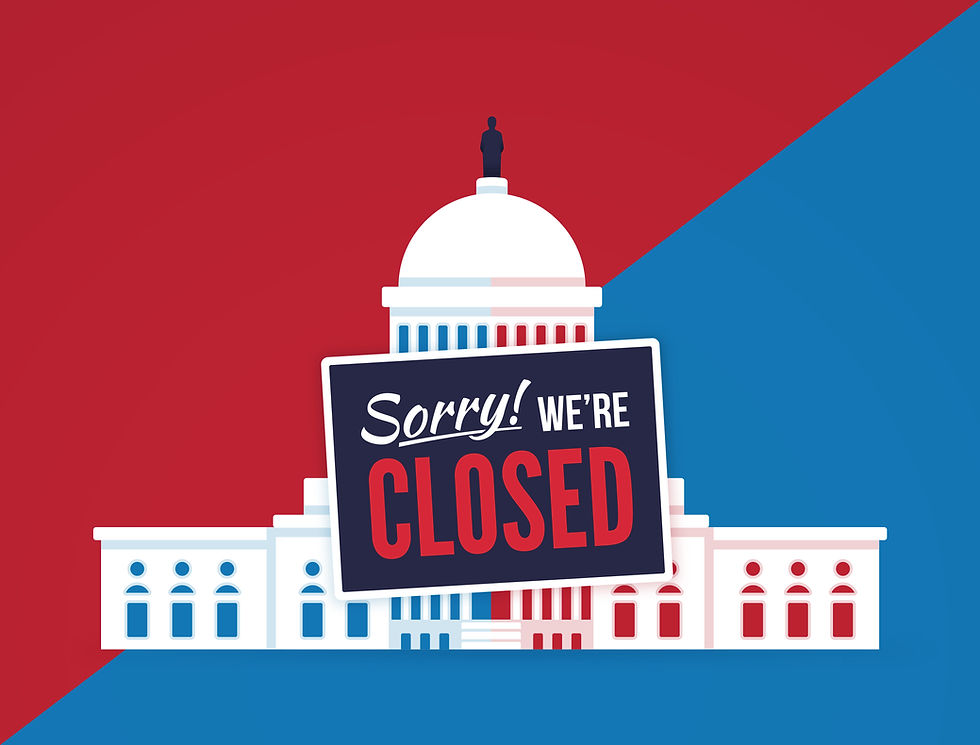Brace for Impact: What a Government Shutdown Means for Your Finances
- Abram Rice Financial

- Oct 6, 2025
- 2 min read

A government shutdown can affect your finances in both direct and indirect ways, depending on your job, benefits, and investments. Here’s a breakdown:
1. If You're a Federal Employee or Contractor
Furloughs: Many federal employees are temporarily out of work without pay.
Delayed Paychecks: You may not get paid until after the shutdown ends — even if you're required to work (like TSA agents or military).
Contractors: Private contractors for federal projects may not be paid at all for missed time.
2. Government Benefits & Services
Social Security & Medicare: These usually continue, but customer service and processing of new applications may slow down.
SNAP (Food Stamps): Could be disrupted if the shutdown lasts weeks.
Tax Refunds: The IRS may delay processing refunds or returns.
Student Loans: Customer service may be harder to reach; processing delays possible.
Small Business Loans: SBA loan approvals could freeze.
3. Investments & Market Impact
Market Volatility: Investors often react to uncertainty. Markets may dip — or swing — depending on how long the shutdown drags on.
Government Bonds: Treasuries may become more volatile. Short-term debt auctions could be delayed.
Delayed Economic Data: Key reports (like jobs, inflation) may not be released on time, making it harder for investors to make informed decisions.
Federal Reserve Decisions: If data is missing, the Fed may hold off or shift its tone on rate hikes or cuts — which directly affects markets and interest rates.
4. Broader Economic Ripple Effects
Consumer Spending Drops: Furloughed workers may cut spending, affecting retail and service industries.
Business Confidence Wanes: Uncertainty can make businesses hold off on hiring, investing, or expanding.
Credit Risk Increases: If the U.S. gets close to breaching its debt obligations (in prolonged shutdowns), markets and credit ratings can be shaken.
How to Protect Yourself
Build or tap into an emergency fund
Avoid large new financial commitments during shutdown uncertainty
Diversify your investments
Stay informed & contact us to discuss potential solutions



Comments